Jason Graves on the art of game and movie soundtracking
The multi award-winning game and movie composer gives us a glimpse into the world of pro soundtrack production
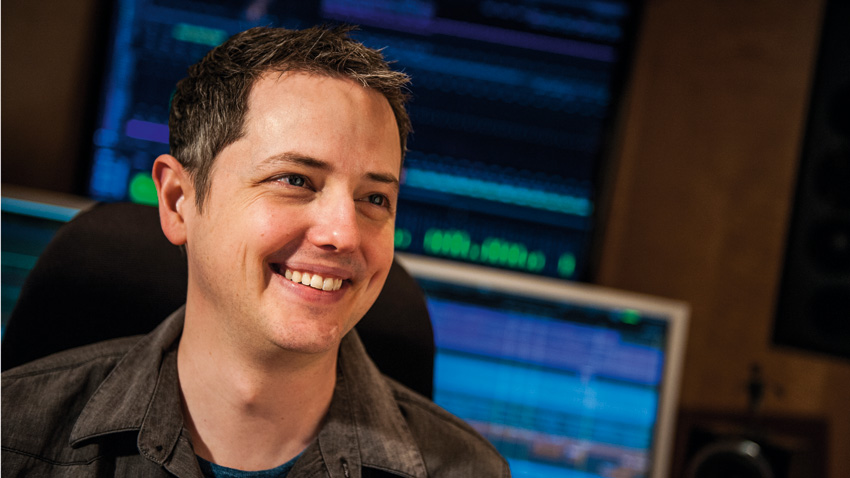
Over the last 20 or so years, Jason Graves has scored soundtracks for some of the games world's biggest names, from Star Wars and Star Trek to the re-booted Tomb Raider and Dead Space. The latter not only boasted sales of more than two million, but also netted Graves a prestigious DICE Award and a brace of BAFTAs, the games equivalent of a couple of Oscars! How many albums shift more than two million copies these days? Or win BAFTAs?
"When we first started playing games 20 or 30 years ago, I don't think any of us knew how big this industry was going to get," says the ever-amiable Graves, a US Southerner by birth, and currently based in North Carolina. "That first generation of teenagers is now in its 40s and still buying games; but, each ten years, the audience gets a whole new generation. As time passes, the games audience just gets larger and larger. Am I happy to be hitching a ride on the coat-tails of that success? Sure as hell I am!"
Unsurprisingly, 2015 has already shaped up to be a musically busy and high-profile year for Graves, with music for two A-list games, The Order: 1886 and Evolve. On first listen, those two soundtracks might seem to come from different ends of the musical spectrum - epic choirs and dark cello stabs for The Order; while the synth-heavy Evolve, with its skittering, almost drum 'n' bass rhythms, drifts towards EDM - but there's no mistaking Graves' percussive blueprint.
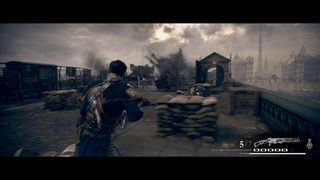
To start with, can we just talk about those two soundtracks? Is it easy to switch from choral/orchestral to synth/groove?
"I love it! It's one of the most enjoyable parts of my job. In the morning, I'm working in full-on orchestral mode with music I recorded at Abbey Road. I'm experimenting with a bunch of weird instruments I've got in the studio, wondering if I can get a ukulele to fit with a cello and choir.
"Then, in the afternoon, it's EDM time. I'm pulling up u-he Zebra, adding a bit of Moog Sub Phatty, getting crazy with compression and all my outboard effects. To be able to live and work in both worlds is… man, it's heaven."
Daft question, but did you enjoy recording parts of The Order soundtrack at Abbey Road?
Get the MusicRadar Newsletter
Want all the hottest music and gear news, reviews, deals, features and more, direct to your inbox? Sign up here.
"Just walking up to that famous front door leaves you kinda speechless. You start thinking, 'The Beatles… Dark Side of the Moon'. Listening to a full orchestra or choir in Studio 2 just blows your mind. Those rooms are so good, it sounds perfect before you've even started recording. Then, you go into the booth and listen to it through the old tube mics and the desk, and it just goes up a whole other level.
"For me, the biggest worries all happened before I got anywhere near the studio. You know that you're going into Abbey Road, so you want your music to be 'good enough'. Does that make sense? I want to write parts that justify being recorded in the same studio that Pink Floyd recorded in."
Even though The Order soundtrack is choir/orchestra-based, you do spend a lot of time adding your own instruments and atmospheres to give that 'traditional' sound a modern twist.
"The way I see it, there are lots of composers out there who've got the same string sets, the same sample packs, the same sounds… I want to create something different. For the past four or five years, I've been putting together a massive library of my own orchestral samples. Whenever I do a big session, I book an extra day in the studio and just record samples: detailed, deep sampling with different lengths, different dynamics… mistakes here and there. The Tomb Raider score was almost entirely made from my own samples, with me adding live percussion.
"And, yes, I load stuff on top of those samples; I externally process those samples; I chop them and change them. Let's say I want to add a bit of grit to the strings - instead of adding distortion, I'll find a dirty synth sound or pick up a guitar and add a touch of that underneath. I bang things, I drag things, I smash things, and it all gets recorded through a series of high-quality mics and preamps. It gets processed and it gets added to the finished product.
"I've got 25 guitar pedals - I can run the original sound through those, mess it up a little, run the new sound 50/50 with the original sound. FabFilter have a fantastic multiband plugin called Saturn - it gets used for EQ as well as distortion, bringing out the highs and grinding up the lows.
"That's where this job has changed so much. Half of my time is spent recording live orchestras and writing, and the other half is spent recording weirdo sound experiments in my studio, looking for something special. In the gaming world, the days of the strictly 'classical' soundtrack are long gone. All bets are off! Sounds can be found anywhere, and the more unique those sounds are, the happier it seems to make the game developers."
How much hard drive space does that sample library take up?
"About four Mac Pros' worth! They're all networked together, with four hard drives each for samples, and 48GB of RAM apiece! For orchestral work, that's always going to be your problem: memory and hard disk space. I remember back in the 90s when I got the first Miroslav Vitous orchestral sample set - which was the holy grail of the soundtrack world - and there was a 128MB violin on there! Wow! Sound quality I'd never heard before.
"The only problem was that I only had about 128MB to play with in my entire setup. If I used the 128MB violin… that was it! Unless you were lucky enough to have a bank of S760s, you were working with 12MB violins and trying to make them sound half-decent."
"We're no longer looking for that natural, classical orchestra. We're looking for the groove. A lot of music - in games, TV and film - is being written by guys who used to be in rock bands. I'm not saying that's a good or bad thing; it's just the way it is."
That's still a problem for most producers. How do you make string and orchestral samples sound real? As if they were played by human beings…
"Yeah, but when you listen to modern soundtracks, they don't sound like they did ten or 20 years ago. Like I mentioned earlier, we're no longer looking for that natural, classical orchestra. We're looking for the groove. A lot of music - in games, TV and film - is being written by guys who used to be in rock bands. I'm not saying that's a good or bad thing; it's just the way it is. The cello is the palm-muted, chugging guitar. You turn up the sound when you're playing a game and you can really shake the room. What we're making is modern rock music - my sampled orchestra is my band.
"The point I'm making is that it's no longer so important to get your sampled strings sounding like the real thing. What matters is that you find sounds and textures that no one else has got."
If the young Jason Graves was looking to get into soundtrack work today, where would he be looking for his sounds?
"Out there, man. Found sounds. Accidental sounds. I spent about three years building a studio that allows me to do just that - to record anything and to find my own sounds. I've got a drum kit permanently set up, 12 guitars, a huge outboard rig, a whole bunch of tube and ribbon mics to bring out the character in an instrument, great preamps. I can record what I want, when I want, how I want. What's this bit of metal? What happens if I scrape it across the guitar strings?
"Sure, you need some orchestral samples, too. Luckily, things are a bit more affordable these days. Peter Siedlaczek is doing some amazing stuff, Cinematic Strings sounds pretty lush, and Cinesample's CineStrings are super-easy to use. Personally, that's what I look for: simplicity. Do I need 25 different bow options and 25 attacks? No, I need a good solid sample and a simple, clean interface."

You're currently on Digital Performer. Would that still be your choice of DAW if you were starting out in 2015?
"I've got friends who swear by Logic and Cubase and some years ago, I did try Logic - back in the days when we were on that 32-/64-bit changeover. I guess I was too entrenched in my own way of working. Most of today's DAWs do the same thing, but they do it in different ways, so it all comes down to personal choice. Performer works for me."
The Evolve soundtrack is definitely more 'synth/EDM'. You already mentioned the Sub Phatty and Zebra, but is there anything else on the Mac?
"Yeah, and a few bits of hardware, too. Alongside Zebra, I use Diva. The best thing about the u-he plugins is that they don't sound like plugins - they sound like the real thing. I've got Native Instruments Komplete and Maschine, Omnisphere… Oh, and I have to mention Heavyocity. We're talking sampled instrument sounds rather than plugins, but the quality is incredible. I use them a lot!
"Hardware-wise, there's the Arturia MiniBrute, Access Virus, Dave Smith Tetra and more. The choice to go in or out of the box really depends on whether you think you might need to tweak the sound somewhere down the line. Keep it in the box and you can mess around for as long as you want; print a synth and you need to start from scratch. Mind you, that's proved very useful in the past. I always seem to find a better sound."
Whether it's synth-based or orchestral, there's always a lot happening in a soundtrack. Must be a bit of a bugger to mix!
[Laughs] "You said it! I'm not mentioning any names here, but I know guys who will put something together and not even attempt a mix. I've seen them send it off to their mixing house, saying, 'Hey, I sure as hell wouldn't want to try and mix that one!' Sadly, I've never had that luxury. Well, actually, I'm not sure I'd want that luxury. I enjoy trying to get something sounding as good as it possibly can be."
In that sense, has working in the box made soundtrack work easier? Maybe a better word would be 'simpler'.
"For my orchestra work, I have a template all set up and ready to go. All the individual channels, the busses, the reverb sends, the EQ - always subtractive, never additive. All I really need to do is put the stuff in there, adjust the level and it's ready to go. I've even got the panning set up for my soundstage.
"In-the-box is great for that, but if I need to add something that I've recorded in my studio, it's all about the outboard. If I can pair the right mic with the right instrument with the right preamp with the right compressor, I don't even need to worry about EQ. OK, maybe a touch of high-pass to get rid of the low-end rumble. After that, all I do is add a bit of reverb and that sound is ready to go."
Ah, the reverb! Surely, one of the composer's most important tools. Today's soundtracks need to sound big and epic and vast and lots of other large words.
"It's funny, but in the early days, I stuck with my outboard reverbs. I had this wonderful box from Kurzweil called the KSP8, which was four reverbs in a box. It was useful to be able to adjust the different reverbs for different things, but once I discovered Altiverb, it just got pushed to one side.
"These days, it's mostly the Lexicon PCM plugins, but I'm sitting on a very tempting fence at the moment: should I buy a Bricasti outboard reverb? And if I do buy one, will I want a dozen more? I guess that's the beauty of the Lexicons; I can pull up as many great reverbs as I want.
"Another very important one is ValhallaDSP. Are you kidding, man? 50 bucks for this thing? It's awesome! This is now my go-to second reverb. The Lexicons get used on the orchestras, but around the studio, it's the Valhalla.
"When I think of all the sounds and effects we have at our disposal today and compare that with my first setup, it kind of makes me smile. For years, I was working with nothing more than an E-MU Proteus MPS Plus Orchestral keyboard and an Alesis SR-16 drum machine!"
"Another very important one is ValhallaDSP. Are you kidding, man? 50 bucks for this thing? It's awesome! This is now my go-to second reverb. The Lexicons get used on the orchestras, but around the studio, it's the Valhalla."
Even in the early days, were you more interested in orchestra/soundtrack music? Did you ever do the band thing?
"As a kid, I started out as a drummer, but I took the drums ridiculously seriously. I studied snare technique, I branched out into percussion… Then, I took piano lessons. I tried forming a band, but while the other kids just wanted to have a bit of fun, I'd spend a month writing out the drum notation to some epic by Rush or Led Zeppelin. The word I'm looking for is 'obsessed'. I was obsessed by music. But maybe that's what you gotta do if you want to make it your career.
"Back in the 80s, I went to a party held by my future wife. Someone had a video camera - which was a big deal back then - and everyone at the party was posing for the camera. All the guys were drinking beers and having a laugh. Maybe trying to impress the girls. All the guys… except one. There was somebody - you can only see the back of his head - sitting at a little Casio keyboard for the whole film, trying to work out Genesis' Turn It On Again.
"Yeah. That was me!"
Jason Graves' soundtrack for the Sony PlayStation 4-exclusive The Order: 1886 is out now on iTunes, Music On Vinyl and Sony Classical. His work can also be heard in Turtle Rock Studios' Evolve, out now for Xbox One, PlayStation 4 and PC.


Computer Music magazine is the world’s best selling publication dedicated solely to making great music with your Mac or PC computer. Each issue it brings its lucky readers the best in cutting-edge tutorials, need-to-know, expert software reviews and even all the tools you actually need to make great music today, courtesy of our legendary CM Plugin Suite.

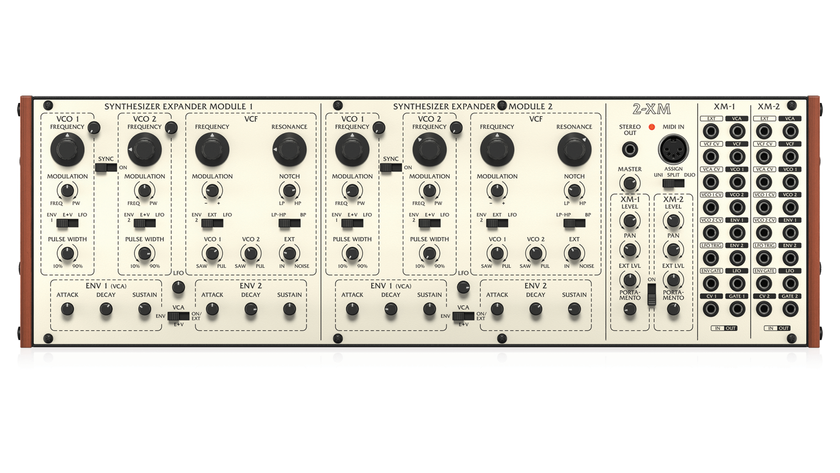
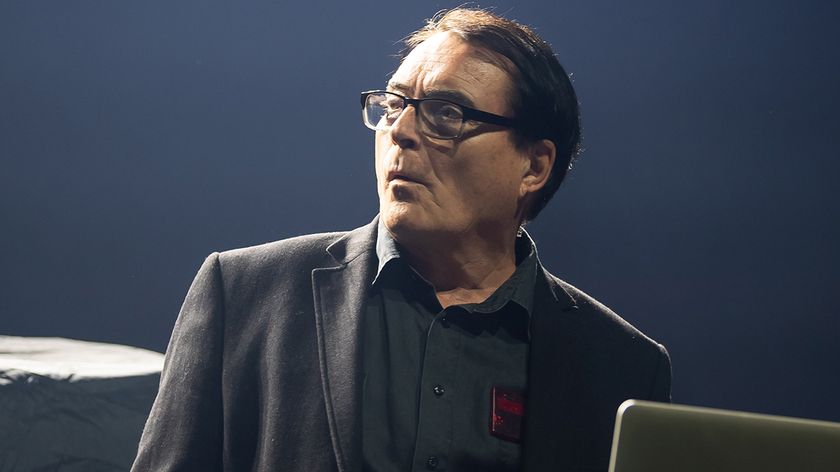
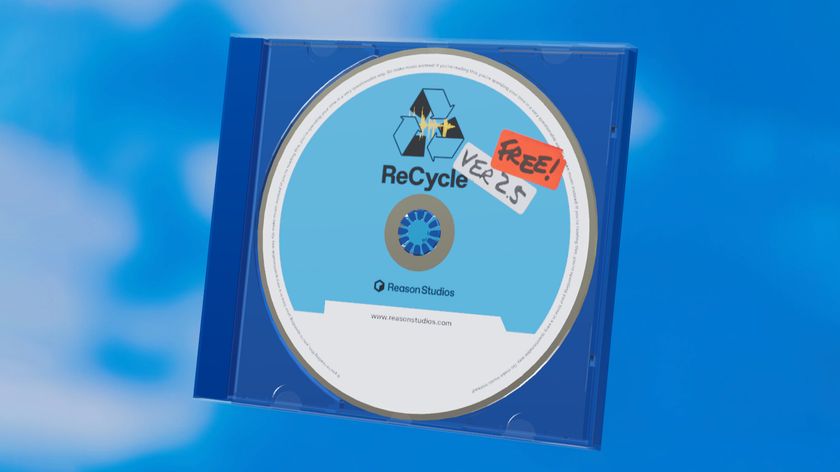
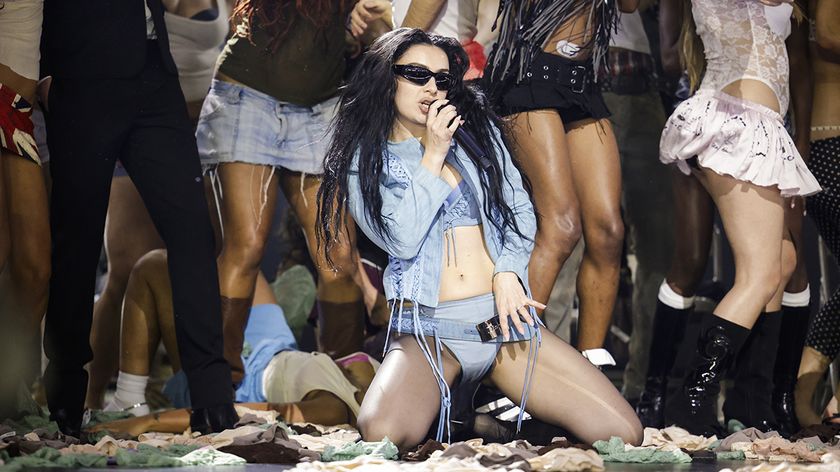
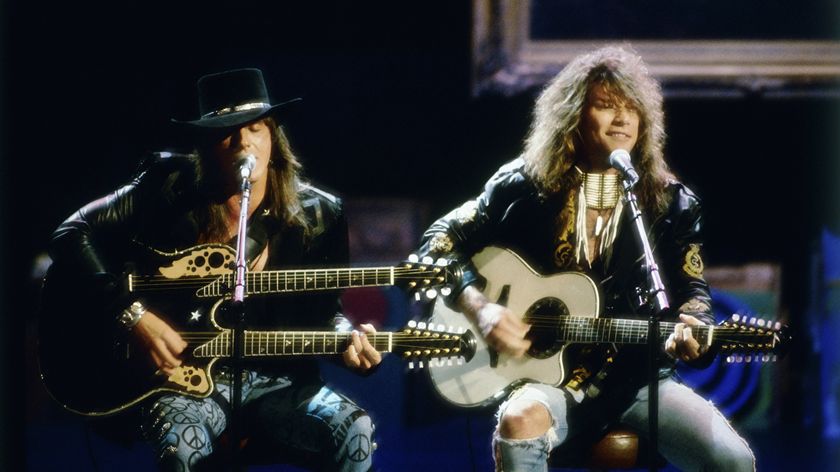
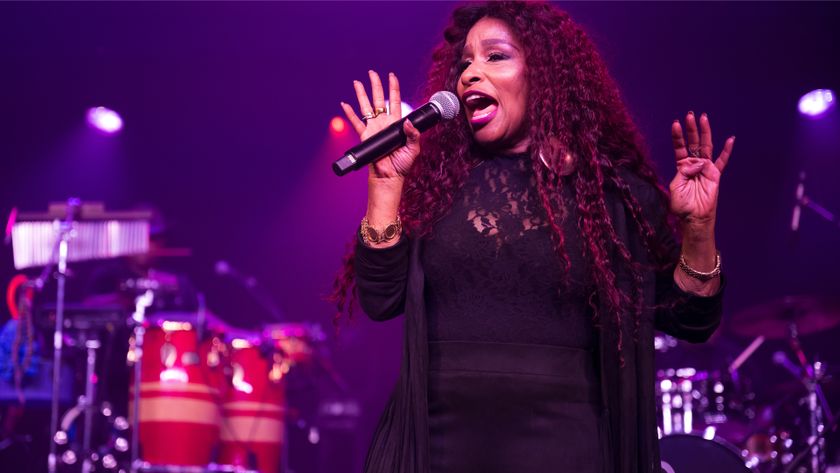
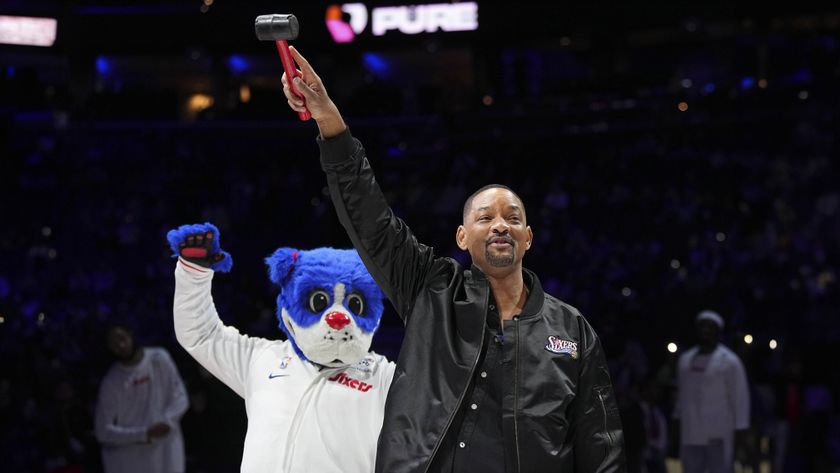


![Chris Hayes [left] wears a purple checked shirt and plays his 1957 Stratocaster in the studio; Michael J. Fox tears it up onstage as Marty McFly in the 1985 blockbuster Back To The Future.](https://cdn.mos.cms.futurecdn.net/nWZUSbFAwA6EqQdruLmXXh-840-80.jpg)